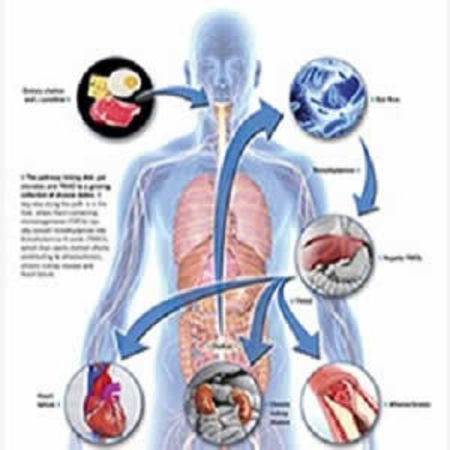Stanley Hazen, MD, PhD, Chair of Cellular and Molecular Medicine and colleagues made a landmark discovery four years ago that linked intestinal bacteria to heart disease. The team found the bacterial waste product TMAO is formed when the digestive system digests nutrients carnitine and choline. High levels of TMAO are associated with higher rates of heart attack, stroke and cardiac death.
Once again, Dr. Hazen and his team have discovered that the naturally occurring TMAO inhibitor called DMB, found in cold-pressed extra virgin olive oils and grape seed oils, can block the production of TMAO and reduce atherosclerosis in mice who were fed a diet with high levels of choline. The research is published in the journal Cell.
With this latest discovery, it could be possible to prevent diet-induced heart disease by targeting the intestinal or gut bacteria. A primary reason for the prevalence of heart disease is the typical Western diet. A therapeutic intervention such as this one could potentially save 400,000 lives who die each year from heart disease in the U.S.
“Many chronic diseases like atherosclerosis, obesity and diabetes are linked to gut microbes,” said Dr. Hazen. “These studies demonstrate the exciting possibility that we can prevent or retard the progression of diet-induced heart diseases starting in the gut. This opens the door in the future for new types of therapies for atherosclerosis, as well as other metabolic diseases.”
Source: Cleveland Clinic Lerner Research Institute
Image Credit: Cleveland Clinic Lerner Research Institute



























